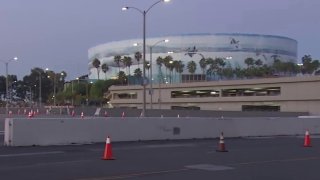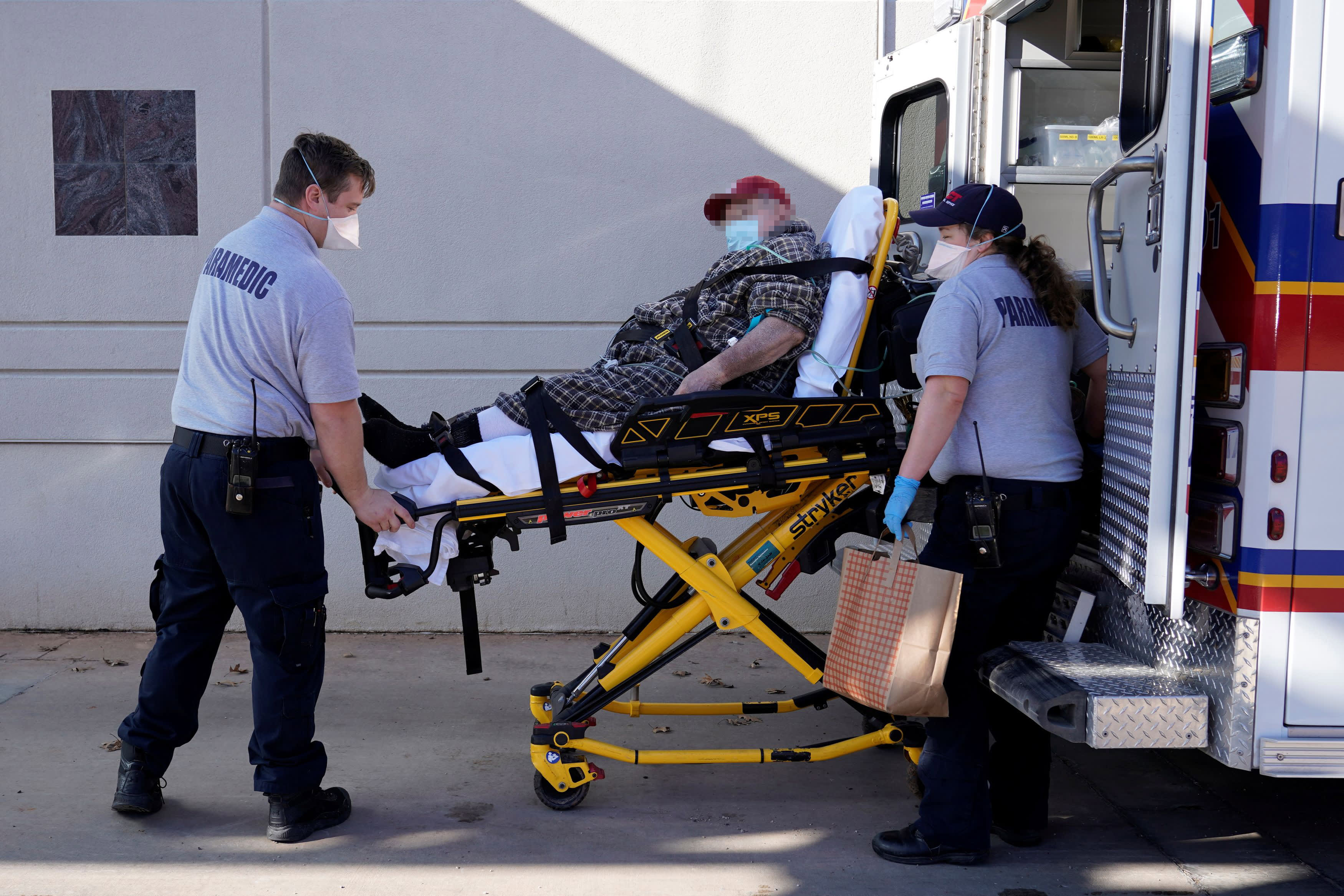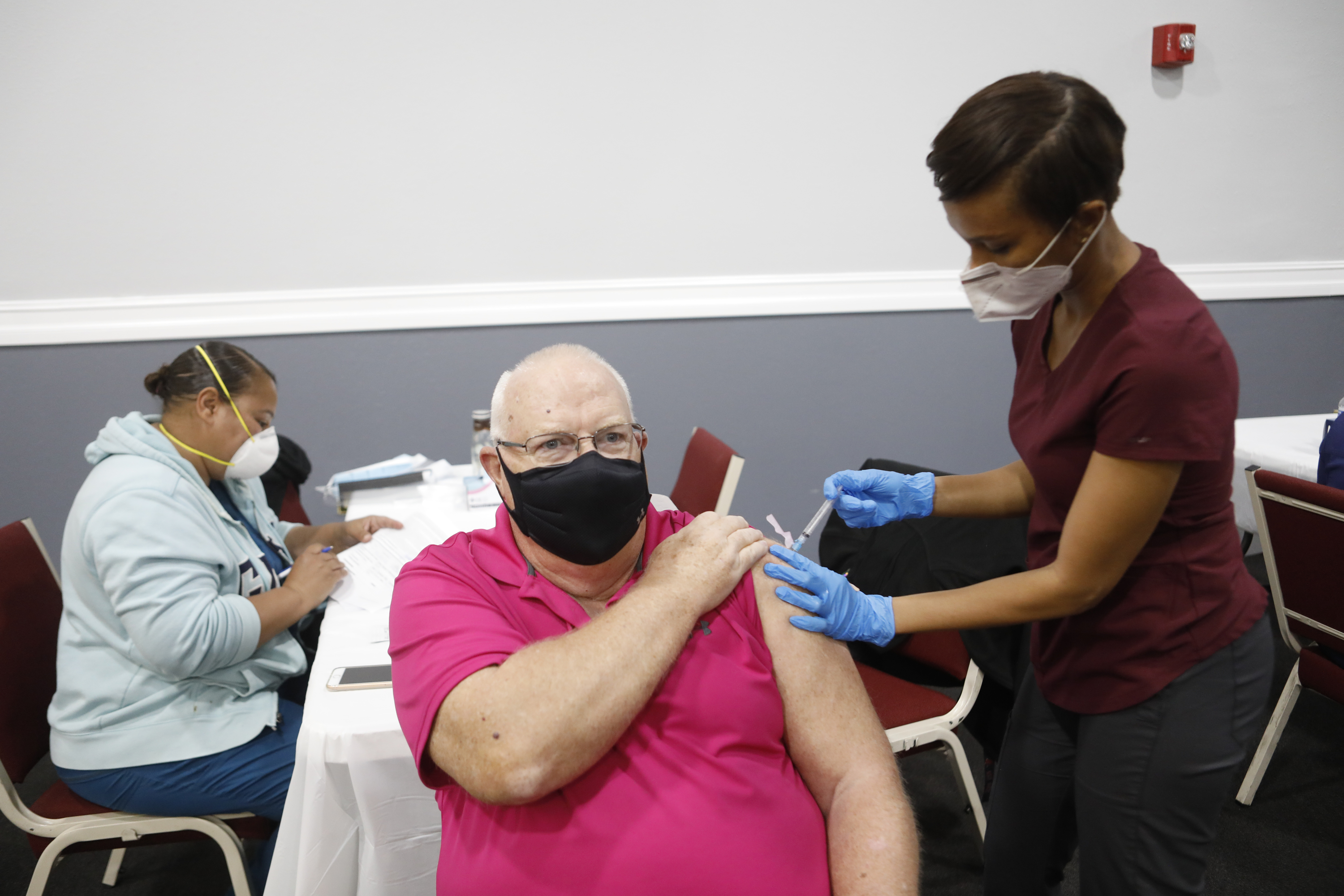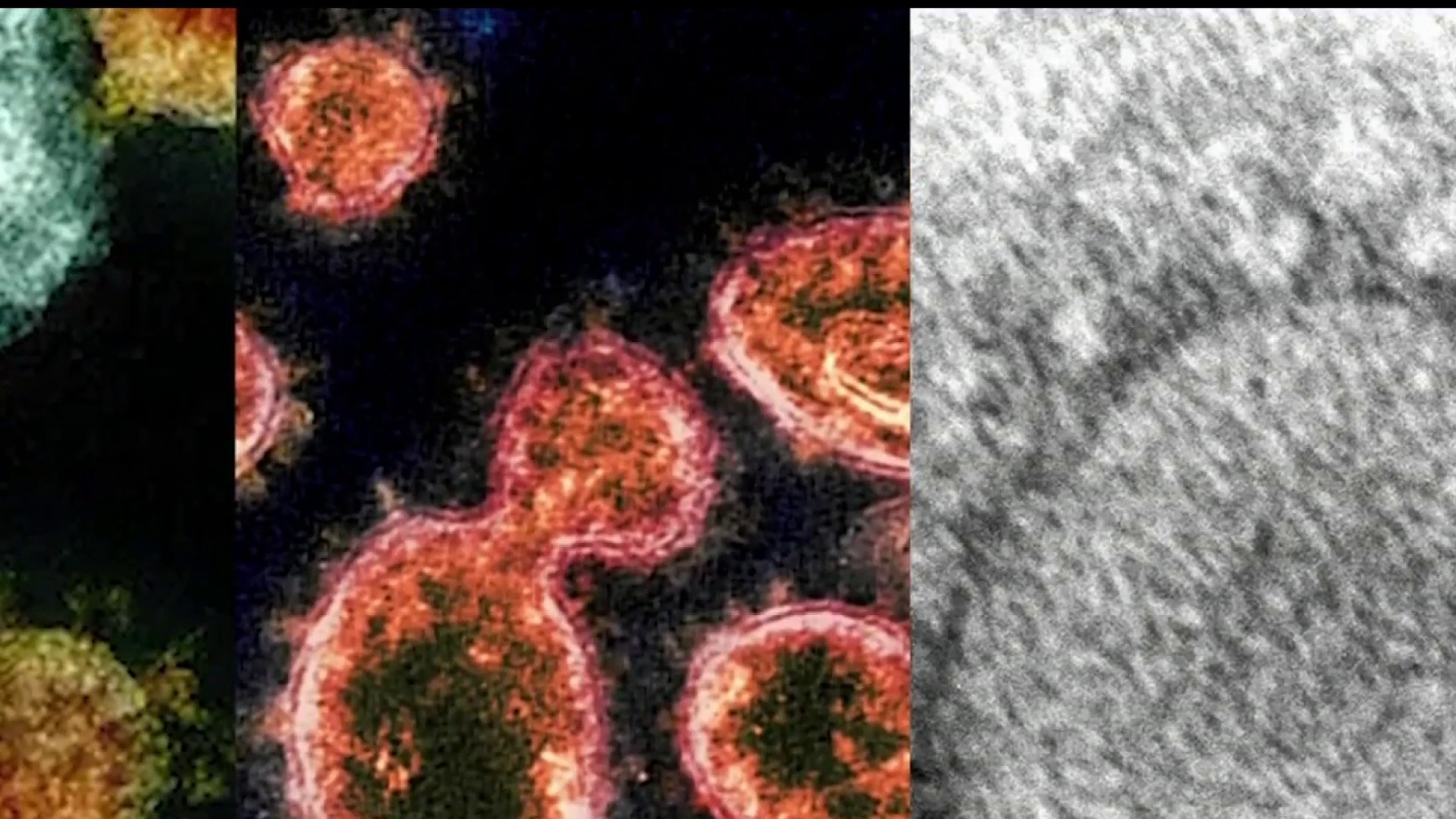
What to Know
- Disabled residents can go to the Long Beach Convention Center between 11 a.m. and 5 p.m. every day except Sunday to receive their vaccines.
- No appointment is necessary, but individuals must show documentation of a disability, such as a placard or doctor's note.
- They also must provide proof of Long Beach residence, including a utility bill or a driver's license.
The city of Long Beach began offering COVID-19 vaccines Monday to residents aged 16 to 64 who have medical conditions or developmental disabilities that make them susceptible to severe illness or death from the virus.
Mayor Robert Garcia said the city was authorized by the state to immediately expand vaccine eligibility to the group, which won't become eligible in the rest of California until next Monday. Gov. Gavin Newsom has repeatedly hailed Long Beach for its success and speed in administering vaccines to previously eligible groups.
"We are grateful to now have the ability to start vaccinating people with disabilities,'' Garcia said last week. "We are going to immediately prioritize this group for our clinics and home visits when resolved.''
Get top local stories in Southern California delivered to you every morning. >Sign up for NBC LA's News Headlines newsletter.
As of last week, the city had vaccinated a total of more than 35,000 residents and 66% of its older adult population, officials said. Overall, more than 16% of the city's population has received a vaccine.
Long Beach residents with disabilities or underlying conditions can go to the Long Beach Convention Center between 11 a.m. and 5 p.m. starting Monday to receive their vaccines. No appointment is necessary, but individuals must show documentation of a disability, such as a placard or doctor's note.
They also must provide proof of Long Beach residence, such as a utility bill or a driver's license.
The city is also working on deploying mobile vaccine clinics outside downtown Long Beach to serve people with disabilities.
More information is available by visiting longbeach.gov/COVID19 or contacting the city's vaccine center at COVID19Vaccine@longbeach.gov or 562-570-4636.
Under state guidelines announced in mid-February, vaccines can be administered to residents across the state beginning March 15 to people between the ages of 16 and 64 who suffer from:
-- cancer;
-- chronic kidney disease;
-- chronic pulmonary disease;
-- Down syndrome;
-- weakened immune system from solid organ transplant;
-- pregnancy;
-- sickle cell disease;
-- heart conditions;
-- severe obesity; and
-- Type 2 diabetes mellitus.
Also becoming available for vaccines will be anyone 16 or over who suffers from a "developmental or other severe high-risk disability'' that leaves the person susceptible to serious illness or death from COVID; if acquiring COVID will limit the person's ability to receiving necessary ongoing care or services; or if the disability would hamper the person's ability to be treated for COVID.
Coronavirus Deaths in Your City and State — and Across the US
These charts use daily coronavirus death data from Johns Hopkins University to show the seven-day moving average of deaths at the city, state and country level.
The impact of coronavirus varies enormously in the United States from one place to another.
Source: Johns Hopkins University.
Credit: Visuals by Amy O’Kruk/NBC, data analysis by Ron Campbell/NBC
The Los Angeles County Department of Public Health plans to follow the state guidelines and expand vaccine eligibility next week to those with underlying health conditions. But Dr. Paul Simon, the county's chief science officer, said last week officials are trying to get clarification from the state on how to determine who is eligible, particularly under the "disability'' category.
He said that, ideally, people with such disabilities or health conditions would be able to get the vaccine from their own doctors.
"At a large community (vaccine site), where people are presenting and we don't know anything about their medical history, it's challenging,'' Simon said. "I think we might have to rely on a letter from the provider, of course, those letters could be forged.''
The county has dealt with repeated problems of people trying to "jump the line'' to access vaccines, sometimes by obtaining access codes intended for specific high-risk communities, and in other cases, trying to use a generic copied document as proof that the person is a certified care-giver and thus eligible for a shot.




